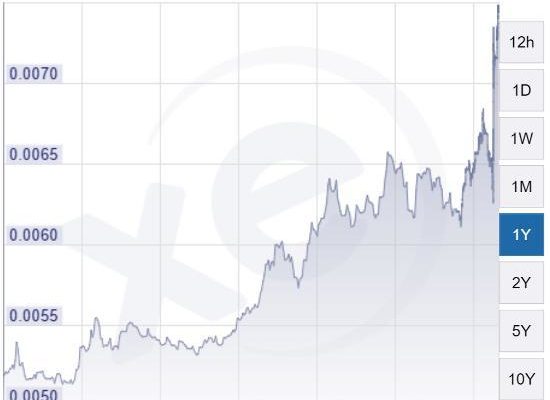One of the first results of Britain’s voting to leave the European Union was a sharply lower pound. Which means the UK is now winning the currency war. Henceforth its exports will be cheaper around the world, enabling its major companies to sell more stuff, make more money and hire more people. Inflation will pop, lessening the burden of government and consumer debts, and — other things being equal — growth will be faster.
But since in a fiat currency world foreign exchange fluctuation is a zero-sum game, for Britain to win a currency war battle means someone else has to lose one. And this time around the really big loser is Japan. Here’s the yen versus the pound over the past year:

Â
The is ominous for several reasons. First, Japan has been actively trying to devalue its currency ever since the 2012 election of Prime Minister Shinzo Abe on a platform of big deficits and enforced central bank easing. He got the policies he wanted, but none of them have worked. Growth remains slow, the yen has gone up (thus pricing Japanese exports out of world markets), and debt continues to accumulate at an unsustainable, potentially-catastrophic rate. And now it’s all falling apart:

